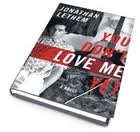Reading Choices: Down With Snobbery
 Pretentiousness, arrogance, haughtiness, elitism–I don’t think any of it belongs among Christian writers and readers. But sadly, literature–or more accurately, people’s feelings about literature–generates attitudes of exclusivity.
Pretentiousness, arrogance, haughtiness, elitism–I don’t think any of it belongs among Christian writers and readers. But sadly, literature–or more accurately, people’s feelings about literature–generates attitudes of exclusivity.
Some suggest that sweet romances are inferior, others that literary fiction is superior to all “commercial fiction.” Still others go to the extreme of saying that fiction of any kind is a pack of lies and unworthy of the Christian’s time.
Then there are those who draw lines between types of publishing. There are those who believe traditional publishing is best because having an agent, editor, and pub board choose a particular manuscript means that industry professionals have validated the quality of the story and writing. Others believe independent publishers who are more accepting of different styles or different subject matter are far superior because of the freedom they allow an author. Still some boast that self-publishing is the only way to go because publishers keep a lion’s share of the revenues a book generates and authors aren’t fairly compensated for the writing and promoting they’re responsible for.
Another divide when it comes to books is based on “what’s allowed.” Should stories from Christians always be G-rated, or PG-rated, at best? Or should publishers allow for more “realism”–some cursing and sex scenes. Some readers adamantly hold to the former position and some writers, to the latter.
What about theology? Some believe Christian literature should filter out the distinctives of any denomination so that all Christians will feel at home in a novel. Hence, churches are called [name of town] Community Church, and little, if any, denominational doctrines come to the forefront, even in books intended for Christian readers. Others believe novels offer a good avenue for a look at how doctrines are played out in real life. A third group thinks novels are not the place for theology at all.
There’s another divide which I’ll term writing philosophy. Is the Christian writing Christian fiction, regardless of the audience, no matter whether he is published by a Christian house? Or is Christian fiction a silly term that ought to be done away with, as some people seem to think? Some suggest our Christianity ought to be intentionally infused into our stories while others think an author’s worldview will naturally leak into what she writes.
For speculative fans, the divide can sometimes be between genres: readers ought to read horror; fantasy is better than science fiction; the bolder forms of steampunk or cyberpunk are more artistic; dystopian fantasy is more relevant than epic fantasy.
I think all these topics are worthwhile to discuss. I think it’s helpful for believers to share ideas with others and to listen to how others view fiction. I think it’s important for writers to listen to readers, and for them to share their varied experiences of publishing.
I don’t think there’s a place for snobbery–one way or the other.
I’ll be honest–I have an ulterior motive for bringing this up. Shortly the Clive Staples Award will be open for nominations and once again parameters will be laid out for the books that are eligible for this particular award. Some people believe that parameters equal snobbery. I don’t believe this. I do believe that parameters are appropriate because not all books are trying to accomplish the same thing.
Hence, it would not be appropriate for a picture book to be entered into the Clive Staples Award to compete with full length novels. Does that apply a bias against picture books? Certainly not. But the scope of this award does not include picture books. The same is true for novellas or for mysteries. Those books may be well-written and the top of their category, but this award at this time is limited so that those books don’t fit.
The vision that I personally have for the Clive Staples Award is that one day we will have multiple divisions–a young adult category, for example, and one for science fiction. I’d even like to see a small press category and a self-published category. Perhaps those could have subdivisions based on genre as well.
All that is future, however. The award has made strides, one of the best being the sponsorship of Speculative Faith and Realm Makers which allowed us to give a monetary prize to the winning author. But we’re a long way off from offering the same to multiple winners in various categories. We’re a long way off from having the volunteer help we’d need to support a multi-layered contest.
All that to say, there will undoubtedly be some fan favorites that won’t fit the parameters of the Clive Staples Award. Know that these parameters are not a statement as to the quality or desirability of books that fall outside the parameters. My hope is that no one will wrongly assume that the Clive Staples Award prefers to be exclusive.
 In fact, when the award first came into being in 2007 many of the avenues for publishing that exist today, were not available. The award was tailored to the standard of other awards for Christian fiction. If and when we are in a position to expand to the newer, burgeoning forms of publishing, we’ll take the appropriate steps to do so in a way that will enhance the award and honor the winners.
In fact, when the award first came into being in 2007 many of the avenues for publishing that exist today, were not available. The award was tailored to the standard of other awards for Christian fiction. If and when we are in a position to expand to the newer, burgeoning forms of publishing, we’ll take the appropriate steps to do so in a way that will enhance the award and honor the winners.
In the meantime, I pray that the Clive Staples Award will not be a lightning rod for snobbery, one side or the other. If it becomes that, then it will be time to put the idea of this particular award for Christian speculative fiction to rest. Because I don’t see a place for snobbery in Christian literature.










































I’ll admit I’m pretty harsh on romances, but I just don’t think that most romances are capable of carrying a novel-length story on their own. There’s only so long that you can stretch it out, otherwise we get teeth-grittingly annoying love triangles/quadrangles/decagons and angsty, melodramatic wafflery. It works better for me as a subplot.
I understand what you’re saying, Notleia. If I read romance, I prefer something like romantic suspense. But every once in a while there’s a Sleepless In Seattle kind of story that I find heartwarming. And there are lots and lots of people (mostly women) who really enjoy romance. I don’t think it’s a good idea to dismiss their genre (and in a backhanded way, them) simply because it’s not a personal preference.
On the other hand, I have some strong feelings about romance that is too graphic or that a person uses to replace real relationships. But that’s a little different subject.
Becky
I think it will continue until the market gets a little more balanced. Currently you have the mainstream CBA novels, the small presses, and the indie publishers, and there’s a lot of striation and dissatisfaction with all three. You wind up with snobbery if just because people seem to only find what they want in one out of the three.
People like what they like and it is very subjective. “Snobbery” is a bit harsh. I’m not going to read romance or horror simply because I don’t enjoy those kinds of stories. To me fantasy and science fiction are the best and they are what I seek more of, because the time I spend reading is valuable to me and I want to enjoy it. I could give reasons why I don’t like certain stories and why I do like others, and I still feel that is not snobbery. I accept and respect that others feel differently and choose differently. That is okay with me. Snobbery is when one gets ugly about it. When they go beyond giving their own opinion to trying to tell others what they should think about it too. Snobs need a group they can leave others out of. Most people are just individuals who like what they like.
It is sad to hear that anyone would get ugly about a book not meeting the criteria for a specific award. Those who want to award a particular kind of book are not snobs either. They aren’t putting anyone down. They just want to award what they like. The category needs to be narrow and not everyone can win. Name calling tends to tell you more about the person doing it than the ones they are putting the label on, and lately name calling seems to say “I’m not responsible for my failure, it’s some fill-in-the-insult’s fault”.
Will small press and self-published books not be eligible again this year?